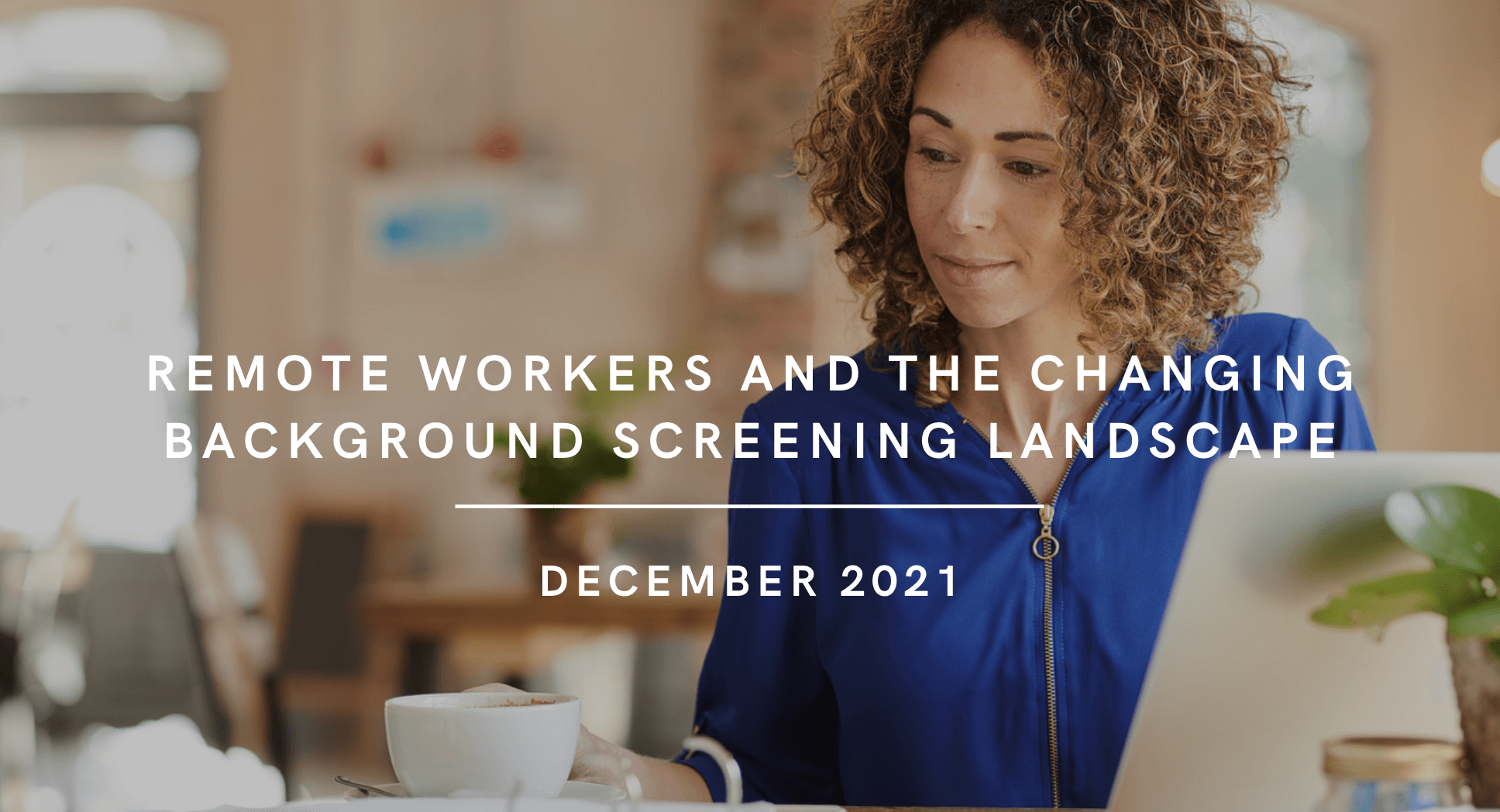With employees stuck at home due to the pandemic, companies had to quickly find solutions to make remote work a viable alternative to the office. As organizations adapted, many realized that with technological advances and an increasing amount of work that can be done at any location, overhead costs decreased significantly, and employees achieved a greater work-life balance.
It’s undeniable that remote work is more prevalent than ever. Not only is it common to interact with colleagues virtually, it now is also common to select a new employee, volunteer, franchisee, or member virtually, without ever having met the individual in person.
But, despite not interacting with customers and colleagues in person, remote workers are not only still representatives of your company, they also often have access to private and proprietary information. Therefore, it is just as important to know the background of each remote candidate as it is for those working in an in-person environment.
No matter the location of your candidates, your organization needs to hire efficiently and gain access to background data to help you make informed hiring decisions. A bad hire, no matter if they are reporting to the office or working remotely, will always hurt an employer’s reputation.
A remote employee who is not properly background checked can cost the company in terms of money spent during onboarding and training, turnover costs, and possible consequences of negligent hiring and retention practices.
When hiring remote employees, it is vital that all the basic processes that are typical of your hiring practices are still in place, especially pre-employment background checks, which provide information such as felony and misdemeanor criminal convictions, active warrants, and ‘watch list’ data.
Keep in mind, there is no one-size-fits-all approach when it comes to background checks – especially for remote employees. Each industry may have its own requirements, and each position comes with different responsibilities. There’s also a chance that candidates are working in an entirely different state than where your company is located. Therefore, it’s important to be aware, not only of the FCRA requirements (Fair Credit Reporting Act – the federal law that governs all background checks), but also cognizant of local jurisdictional regulations in the state where the employee resides – to ensure you are complying with the proper state and local regulations.
While there are new challenges to the way background checks are run, rest assured there are great solutions out there that are adapting to the times and making the background screening process easier for organizations. Additionally, with location no longer a barrier, the talent pool has become much bigger, affording many more options than ever to find the best candidate for a job.
To make the background check process even easier for remote employees and their employers, reliable background screening companies offer the ability to obtain the applicant’s authorization digitally, so hard copy forms are no longer needed. Digital screening products deliver a seamless experience for job applicants, creating a positive experience that delivers benefits to both the candidates and your organization.
When hiring remote employees, you need to conduct background check activities regardless of the location of candidates or talent acquisition staff. A reliable background screening partner that is also a consumer reporting agency (CRA) can provide the commitment, technology, and processes to help you stay in compliance and hire talent efficiently.
Posted by: Rudy Troisi, L.P.I., President and CEO, Reliable Background Screening
Copyright © 2021, Reliable Background Screening, a Division of Marcett, Inc. All rights reserved


